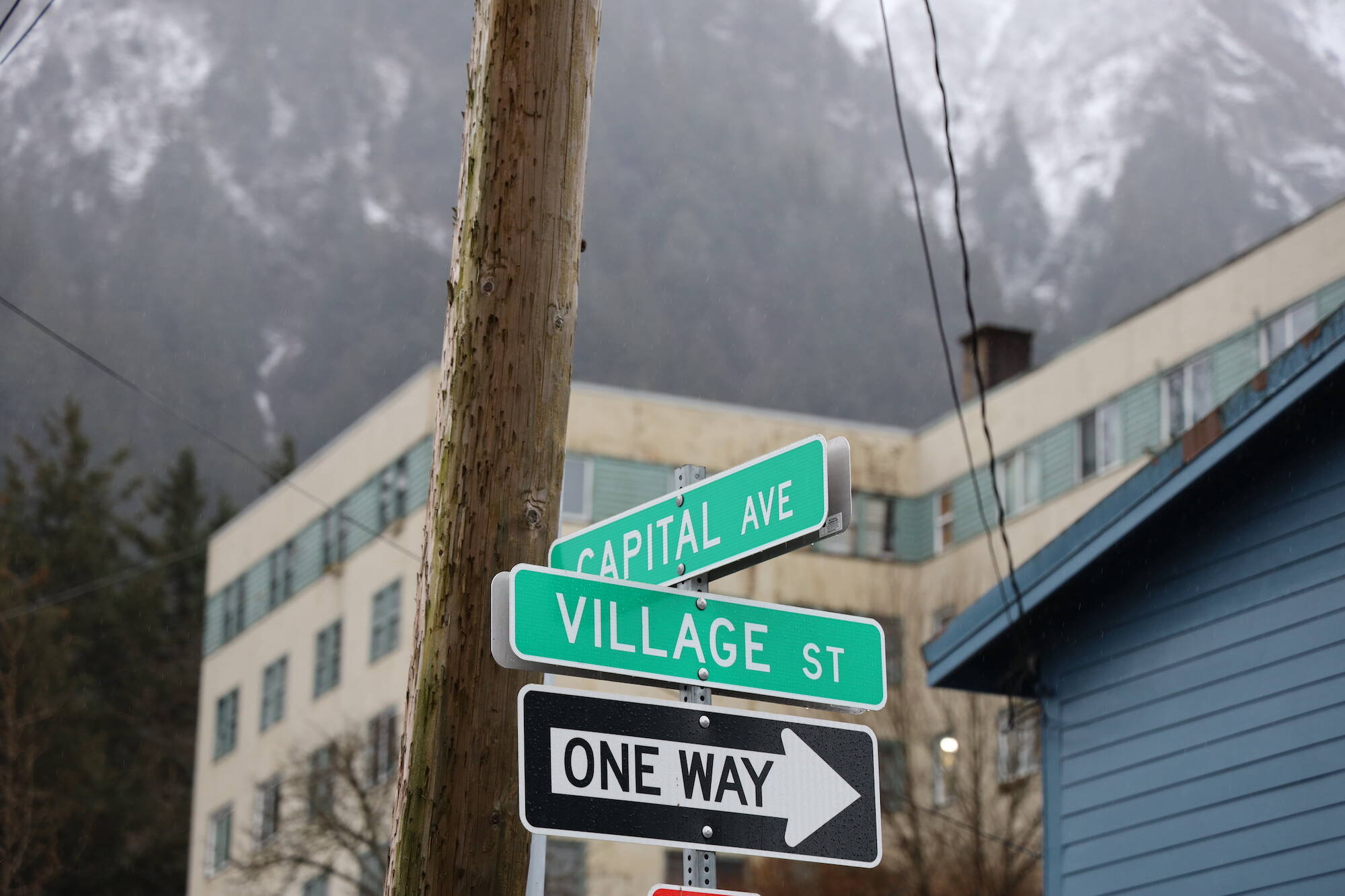What was described by a tribal leader as a benchmark achievement in a landback initiative has inspired what could become landmark litigation.
Late Tuesday morning the state of Alaska filed a lawsuit against the federal government over a small lot of land in downtown Juneau, which was approved to be the first parcel of land owned by the Central Council of the Tlingit and Haida Indian Tribes of Alaska to be put into federal trust. The complaint asks the U.S. District Court to declare the federal government’s action “was arbitrary and capricious, an abuse of discretion, and not in accordance with law,” undo the decision to take the lands into trust, return the land to Tlingit and Haida, vacate any proclamation designating the land as a reservation, stop similar land-into-trust applications in the future.
“It’s insulting — I am dismayed the state wants to continue these tired and old arguments,” said Tlingit and Haida President Richard Chalyee Éesh Peterson in an interview with the Empire. “It’s mean-spirited and it’s an assault on many of the mutual efforts and goodwill that have in recent years defined state and tribal relations in Alaska — it’s incredibly disappointing.”
The lawsuit comes less than a week after the sovereign tribe in Juneau signed a deed for the parcel and hours before the start of this year’s legislative session. The application for the land was originally filed more than a decade ago and was approved just in mid-November — only the second ever approved in the state.
“This was a great day for our Tribe, self-determination, and all tribes in Alaska. We have crossed the finish line in the land-into-trust process and will continue the journey for our remaining applications,” Peterson said in a statement after the deed signing.
The state’s lawsuit names Assistant Secretary of Indian Affairs Bryan Newland with the U.S. Department of the Interior, challenging his decision to accept Tlingit and Haida’s land into a federal trust, calling his action “an abuse of direction.”
“Taking land into trust is one of the most important functions of the Bureau of Indian Affairs,” Newland said in a November release announcing the decision. “This decision aligns with President Biden’s commitment to protecting Tribal sovereignty and revitalizing Tribal communities by restoring Tribal homelands. It demonstrates this Administration’s respect for unique nation-to-nation relationships, commitment to the country’s treaty and trust responsibilities, and desire to strengthen Tribal sovereignty and advance Tribal self-determination.”
The state’s complaint echoes an opinion from Trump-era Solicitor Daniel Joriani issued in January 2021 that replaced a January 2017 opinion from Obama-era Solicitor Hilary Tompkins that concluded the secretary of the interior could take land into trust to benefit Alaska Natives. The 2021 opinion predicted accepting land into trust in Alaska would result in protracted litigation.
According to the state’s complaint, the DOI’s decision limits the state’s sovereign jurisdiction and “undermines key terms of the Alaska Native Claims Settlement.” Additional, the state asks for clarity on whether the Secretary has the authority to take land into trust.
“The extent of the State of Alaska’s sovereignty over lands within its borders should not be determined by the political whims of federal officials,” the complaint states.
The transfer was seen as a landmark move by Tlingit and Haida and tribal officials in the state, regarding it as another step toward addressing Alaska’s “landless tribe” issue, a controversy in the state since the passage of the Alaska Native Claims Settlement Act in 1971 that barred the Bureau of Indian Affairs from processing land-into-trust applications in Alaska.
However, in 2014 the DOI issued a revised rule that reversed the policy, which allowed the first land-to-trust transfer by the Craig Tribal Association in 2017. Tlingit and Haida also have four more additional applications for land that are still pending by the DOI, along with applications still pending from the Ninilchik Traditional Council and the Native Village of Fort Yukon.
“We believe that this issue of tribal lands was settled with the passage of ANCSA in 1971, and that has been the law of the land for more than 50 years. If we are wrong, then the Court needs to clarify it,” said Gov. Mike Dunleavy in a news release announcing the lawsuit. “The purpose of the case is to receive unambiguous legal clarity for the State, local governments, the tribes and all Alaskans, on the question of placing Native land into federal trust for the tribes.”
Moving forward, Peterson said he is confident Tlingit and Haida will prevail and “will not give up the fight.” He said Tlingit and Haida plans to support Newland and continue to educate the public and the Legislature on the issue.
“We’re not the enemy — together we can do so much more for Alaskans than we do against each other,” he said. “I challenge Dunleavy to put these antics aside and sit down with us civilly with an open heart, mind and ears to learn.”
• Contact reporter Clarise Larson at clarise.larson@juneauempire.com or (651)-528-1807. Follow her on Twitter at @clariselarson.

